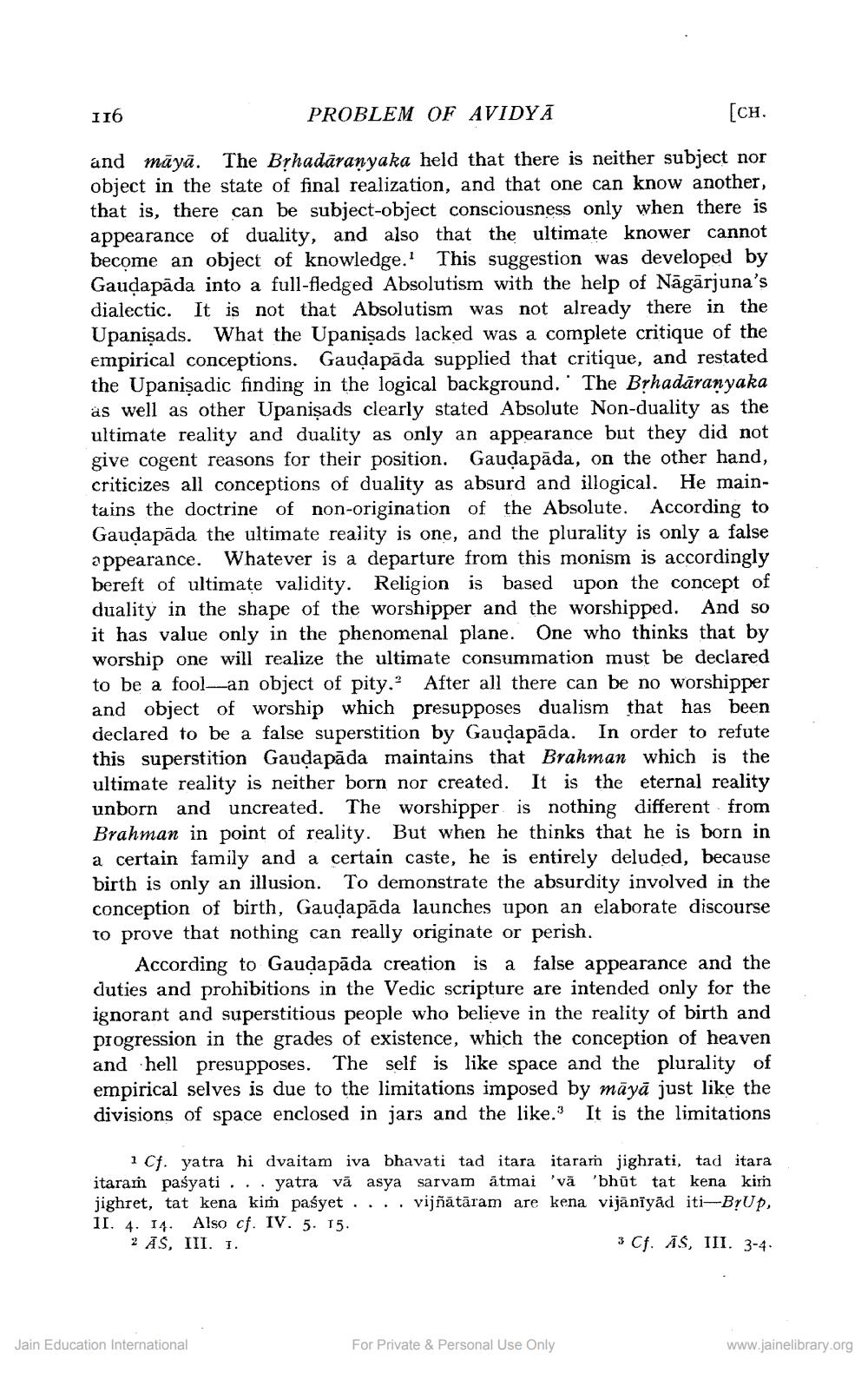________________
PROBLEM OF AVIDYA
[CH.
and māyā. The Bṛhadaranyaka held that there is neither subject nor object in the state of final realization, and that one can know another, that is, there can be subject-object consciousness only when there is appearance of duality, and also that the ultimate knower cannot become an object of knowledge. This suggestion was developed by Gauḍapada into a full-fledged Absolutism with the help of Nagarjuna's dialectic. It is not that Absolutism was not already there in the Upanisads. What the Upanisads lacked was a complete critique of the empirical conceptions. Gauḍapada supplied that critique, and restated the Upanisadic finding in the logical background. The Bṛhadaranyaka as well as other Upanisads clearly stated Absolute Non-duality as the ultimate reality and duality as only an appearance but they did not give cogent reasons for their position. Gauḍapada, on the other hand, criticizes all conceptions of duality as absurd and illogical. He maintains the doctrine of non-origination of the Absolute. According to Gauḍapada the ultimate reality is one, and the plurality is only a false appearance. Whatever is a departure from this monism is accordingly bereft of ultimate validity. Religion is based upon the concept of duality in the shape of the worshipper and the worshipped. And so it has value only in the phenomenal plane. One who thinks that by worship one will realize the ultimate consummation must be declared to be a fool-an object of pity. After all there can be no worshipper and object of worship which presupposes dualism that has been declared to be a false superstition by Gauḍapada. In order to refute this superstition Gauḍapada maintains that Brahman which is the ultimate reality is neither born nor created. It is the eternal reality unborn and uncreated. The worshipper is nothing different from Brahman in point of reality. But when he thinks that he is born in a certain family and a certain caste, he is entirely deluded, because birth is only an illusion. To demonstrate the absurdity involved in the conception of birth, Gauḍapada launches upon an elaborate discourse to prove that nothing can really originate or perish.
116
According to Gauḍapāda creation is a false appearance and the duties and prohibitions in the Vedic scripture are intended only for the ignorant and superstitious people who believe in the reality of birth and progression in the grades of existence, which the conception of heaven and hell presupposes. The self is like space and the plurality of empirical selves is due to the limitations imposed by māyā just like the divisions of space enclosed in jars and the like." It is the limitations
1 Cf. yatra hi dvaitam iva bhavati tad itara itaram paśyati. yatra va asya sarvam atmai jighret, tat kena kim paśyet.... vijñātāram are kena vijānīyād iti-BṛUp, 11. 4. 14. Also cf. IV. 5. 15.
2 AS, III. I.
3 Cf. AS, III. 3-4.
Jain Education International
itaram jighrati, tad itara 'vā 'bhut tat kena kim
For Private & Personal Use Only
www.jainelibrary.org




